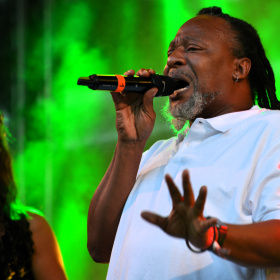New media and Nigeria's music industry
As Nigeria sees its music industry shift from traditional physical distribution to digital distribution, the case for a shift in music promotion can be made.
 Music promotion through new media is a key component in the growth of the Nigerian artist.
Music promotion through new media is a key component in the growth of the Nigerian artist.
Nowadays, regardless of the style of music, promotion through new media is a key component in the growth of the Nigerian artist.
Record labels and independent artists invest a lot of money and time building relationships with new media entities and social media influencers since it has become evident that these entities and influencers are able to break out new artists.
Although content owners continue to utilise both the traditional and new media in promoting their content, the advancement of technology and cost-effective data offered to consumers suggests that new media has an edge over traditional media.
With new media, content owners are able to compartmentalise target markets and more accurately measure their market reach. This means it might be more effective for new artists to promote their music through a social media influencer with measureable followers of a particular demographic than to feature on a daily newspaper with a wide audience.
Furthermore, Nigeria has countless online platforms offering flexible services to artists of all levels (new artists to superstars), unlike traditional media with fixed rates. Some of the new media platforms have changed their business models from promoting music content to making the music available on their platforms for streaming or downloading.
This has given rise to the question of whether these platforms have crossed the line separating promoters (those that are paid to promote music) and distributors (those that make money from the exploitation of music content). The answer will determine whether such media platforms should pay public performance and/or mechanical royalties just like radio stations and television channels.
Unfortunately, the Nigerian Copyright law, passed in 2004, did not foresee the potential of technology in music business: It was drafted to govern physical reproduction and distribution. Also, Nigeria is yet to develop a plan acceptable to content owners and media platforms.
Nevertheless, the impact of traditional media cannot be trivialised. It would be surprising to have a successful record without a decent number of radio plays. A good number of the population, particularly those in the rural areas still depend heavily on traditional media for the latest music.
Tochukwu Tagbo is a partner at Commercial Practice Solicitors in Lagos, Nigeria, and has had almost a decade of experience in intellectual property and general business law. Read his earlier article on Music In Africa here.































Comments
Log in or register to post comments